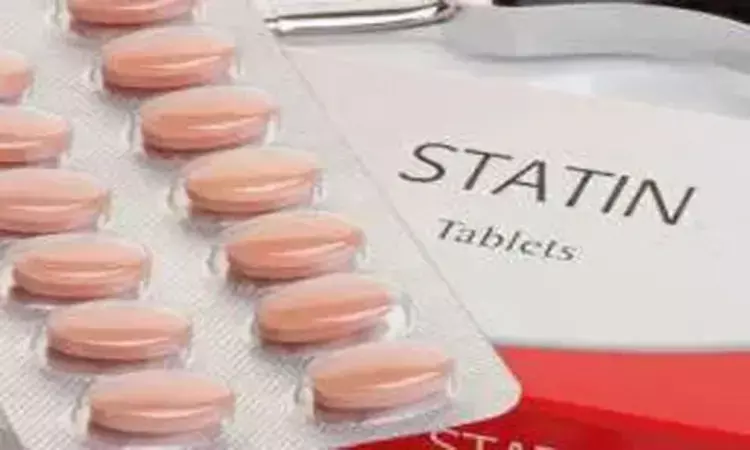- Home
- Medical news & Guidelines
- Anesthesiology
- Cardiology and CTVS
- Critical Care
- Dentistry
- Dermatology
- Diabetes and Endocrinology
- ENT
- Gastroenterology
- Medicine
- Nephrology
- Neurology
- Obstretics-Gynaecology
- Oncology
- Ophthalmology
- Orthopaedics
- Pediatrics-Neonatology
- Psychiatry
- Pulmonology
- Radiology
- Surgery
- Urology
- Laboratory Medicine
- Diet
- Nursing
- Paramedical
- Physiotherapy
- Health news
- Fact Check
- Bone Health Fact Check
- Brain Health Fact Check
- Cancer Related Fact Check
- Child Care Fact Check
- Dental and oral health fact check
- Diabetes and metabolic health fact check
- Diet and Nutrition Fact Check
- Eye and ENT Care Fact Check
- Fitness fact check
- Gut health fact check
- Heart health fact check
- Kidney health fact check
- Medical education fact check
- Men's health fact check
- Respiratory fact check
- Skin and hair care fact check
- Vaccine and Immunization fact check
- Women's health fact check
- AYUSH
- State News
- Andaman and Nicobar Islands
- Andhra Pradesh
- Arunachal Pradesh
- Assam
- Bihar
- Chandigarh
- Chattisgarh
- Dadra and Nagar Haveli
- Daman and Diu
- Delhi
- Goa
- Gujarat
- Haryana
- Himachal Pradesh
- Jammu & Kashmir
- Jharkhand
- Karnataka
- Kerala
- Ladakh
- Lakshadweep
- Madhya Pradesh
- Maharashtra
- Manipur
- Meghalaya
- Mizoram
- Nagaland
- Odisha
- Puducherry
- Punjab
- Rajasthan
- Sikkim
- Tamil Nadu
- Telangana
- Tripura
- Uttar Pradesh
- Uttrakhand
- West Bengal
- Medical Education
- Industry
Statins may help reduce weight by altering gut microbiota

Scientists while investigating a potential role of the gut microbiota in the development of cardio-metabolic diseases have identified common cholesterol-lowering drug statins as a potential microbiota-modulating therapeutic.
Statins may improve gut microbiota and help shed weight in obese individuals, finds a new study. The MetaCardis investigators have explored gut bacteria in almost 900 individuals from Denmark, France and observed that obesity-associated microbiota dysbiosis is negatively associated with statin treatment.The new paper has been published in the scientific journal Nature.
Statin drugs refer to a large class of medications known as HMG-Co A reductase inhibitors and are primarily used for lowering low density lipoprotein, or LDL, cholesterol, and heart attack risk.
Studies in the past have found that imbalances in the composition of gut microbes are linked with a variety of chronic human disorders spanning from obesity, diabetes inflammatory bowel diseases to depression, schizophrenia, autism and Parkinson.
The human gut microbiota consists of trillions of bacteria, fungi and virus constituting an inner chemical factory producing a multitude of microbial compounds affecting immunity, neurobiology and metabolism of the human host.In addition, it is known that unhealthy dieting and use of some medications, for instance stomach acid neutralizers, the so-called proton pump inhibitors, are associated with a further disruption of the microbial communities of the gut.
The intestinal microbiota in obese individuals had previously been shown to differ from those in lean subjects with a poor bacterial diversity, a relative depletion of health promoting bacteria and the remaining bacteria dominated by an inflammatory tone.
In their Nature article, the researches now define a cluster of bacteria called Bact2 enterotype, which is found in 4% of lean and overweight people but in 18% of obese individuals who did not use statin drugs, a group of cholesterol lowering medications.
However, in other obese study participants who were treated with statins, the prevalence of the unhealthy Bact2 enterotype was significantly lower (6%) than in their non-treated counterparts (18%) - comparable to levels observed in non-obese participants (4%). The same trend was validated in a Flemish study sample of about 2000 participants.
Statins are commonly prescribed to reduce risk of developing cardiovascular diseases like myocardial infarction and stroke. It is estimated that more than 200 million people worldwide are prescribed statins. Besides their cholesterol-lowering effects, statins also tend to appease patients' systemic inflammation levels which in part may be related to a disrupted gut microbiota.
The results suggest that statins could potentially modulate the disrupted gut microbiota and linked inflammation in obesity. Previous experiments in rodents have shown an impact of statins on bacterial growth, which might benefit non-inflammatory bacteria and underlie the anti-inflammatory effects of statin therapy. Obviously, clinically controlled human trials are needed to address whether statins mediate some of their anti-inflammatory effect via an improvement of the Bact2 enterotype of an aberrant gut microbiota.
For further reference log on to:
Dr Kamal Kant Kohli-MBBS, DTCD- a chest specialist with more than 30 years of practice and a flair for writing clinical articles, Dr Kamal Kant Kohli joined Medical Dialogues as a Chief Editor of Medical News. Besides writing articles, as an editor, he proofreads and verifies all the medical content published on Medical Dialogues including those coming from journals, studies,medical conferences,guidelines etc. Email: drkohli@medicaldialogues.in. Contact no. 011-43720751


